
Exciting new series on “Voice, Body and Movement for Lawyers – How to connect with the jury and find Justice Through Dramatic Technique!”
Click here to find out more
I’m ok. I can work this out for myself.
I’m not like a “real” alcoholic anyway.
I want help but I don’t want anyone to know.
Will I be reported to Discipline?
Sound familiar? There is a misconception among lawyers that only people who have “hit bottom” need or ask for help. The statistics say otherwise as recent surveys indicate that the overwhelming majority of legal practitioners believe they have suffered negative mental health consequences as a result of their chosen profession.
With the alarming prevalence of substance use and mental health disorders in the legal profession, it is imperative that we are all armed with the knowledge and insight of how to approach someone who may be struggling. Certain approaches yield greater results than others. The "Intervention" methods shown on television, while often compelling, don't typically produce excellent results – especially with members of the legal profession.
As lawyers, we all know that language is often the key to success. Why should we expect it to differ in the life and death struggle to help someone who suffers from alcohol or substance misuse or a mental health disorder? With the alarming number of suicides in our profession, it tells us that people would rather die than ask for help - and this must stop.
This important program, led by Brian S. Quinn, Esq., Education and Outreach Coordinator of Lawyers Concerned for Lawyers of Pennsylvania, will share strategies that work when you approach someone you feel may be in distress or impaired.
Learning Objectives:
• Recognize that one in three legal professionals will struggle with substance use and/or a mental health disorder at some point in their legal careers.
• Spot the signs of impairment and learn the "Motivational Interventions" approach that yields results and saves lives.
• Utilize the confidential, free, safe, and supportive services that are available through the lawyers assistance programs throughout the United States
• The barriers that exist that prevent lawyers and judges from asking for help with an alcohol or substance misuse or mental health disorder.
• Identify the parameters of Rule of Professional Conduct 8.3 (c) – and the safe harbor that it provides to protect attorneys working with an approved lawyers assistance program or who contact a lawyers assistance program on behalf of an attorney or judge who is struggling.
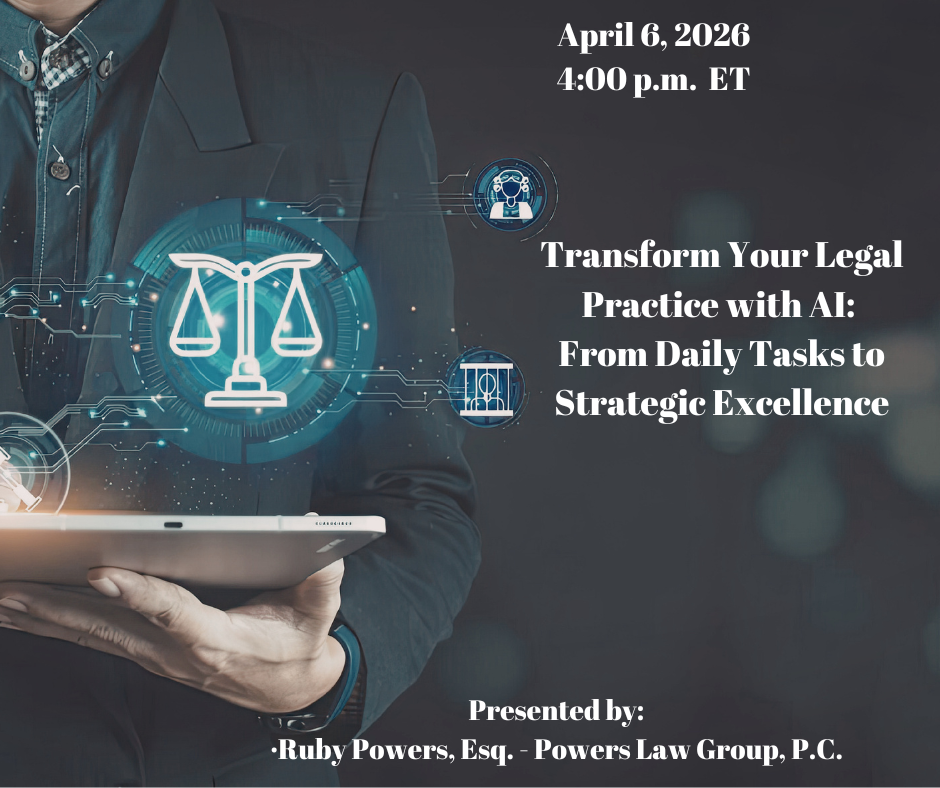
This course provides a strategic roadmap for attorneys to transition from administrative burnout to ...
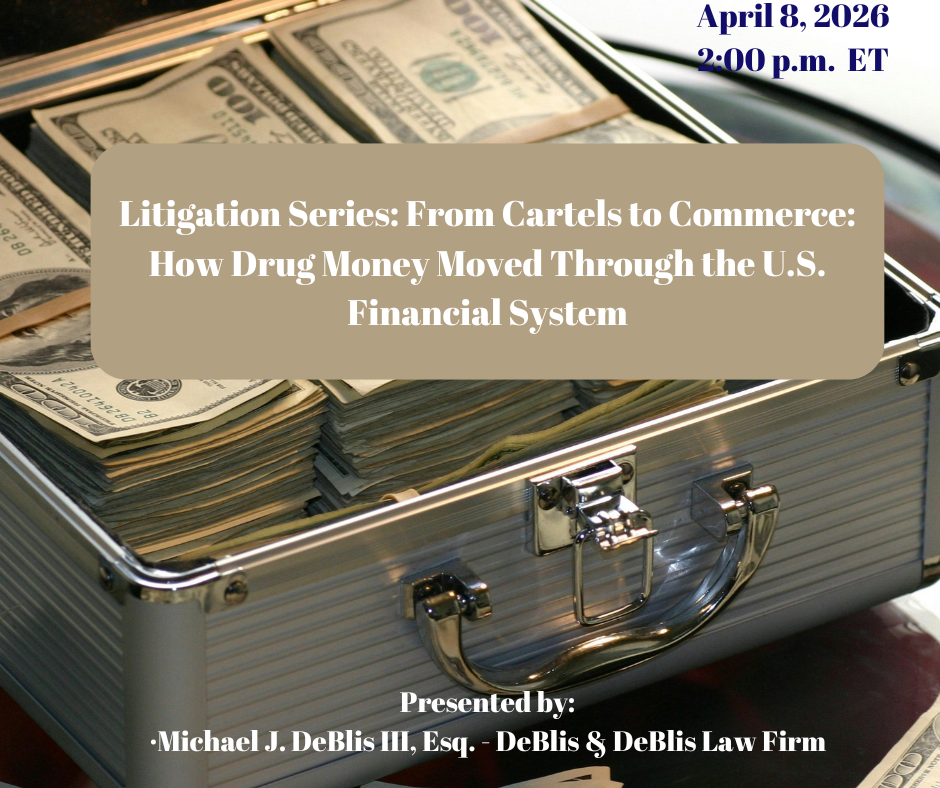
This program provides a detailed examination of the Black Market Peso Exchange (BMPE), one of the mo...
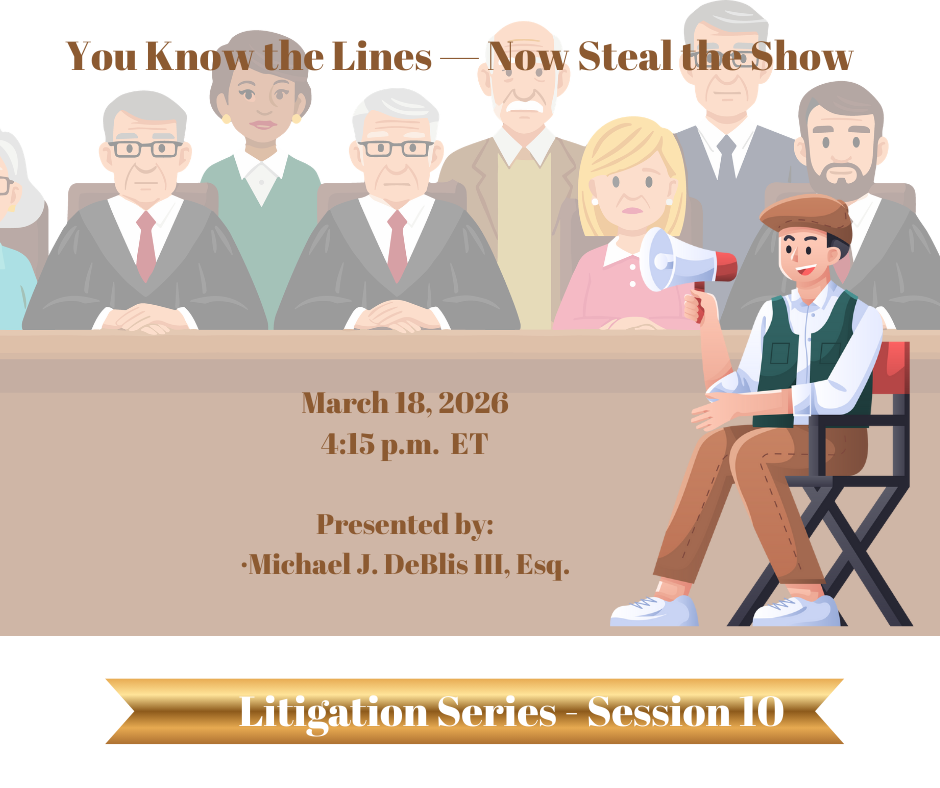
This presentation teaches attorneys how to deliver memorized text—especially openings and clos...
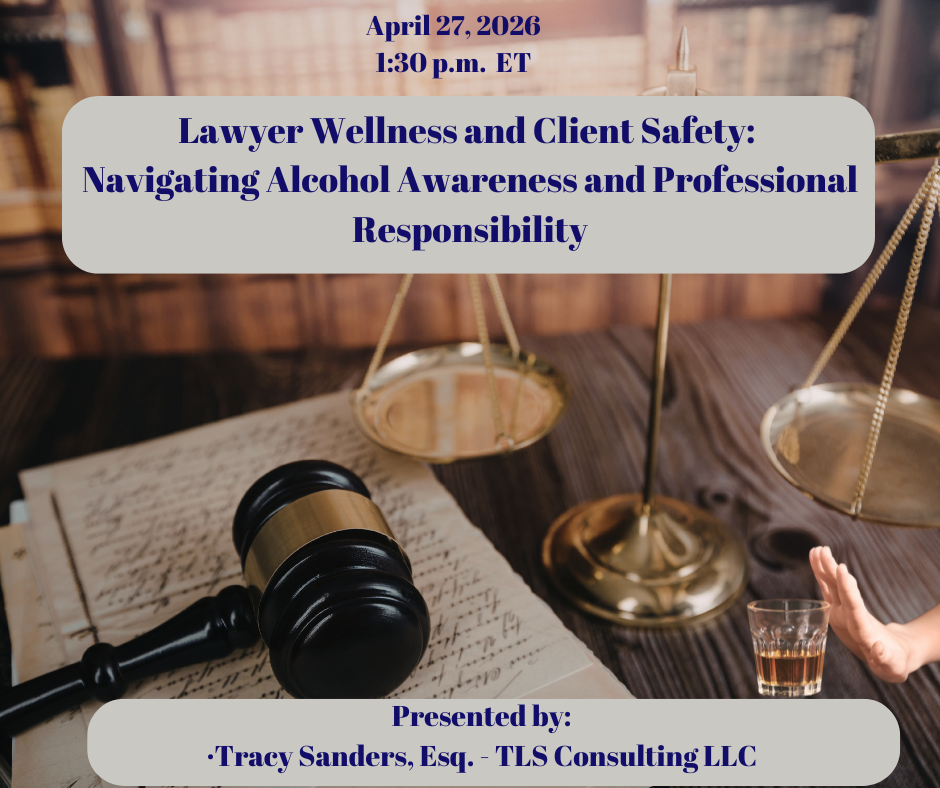
This continuing legal education (CLE) program highlights the intersection of lawyer wellness, alcoho...
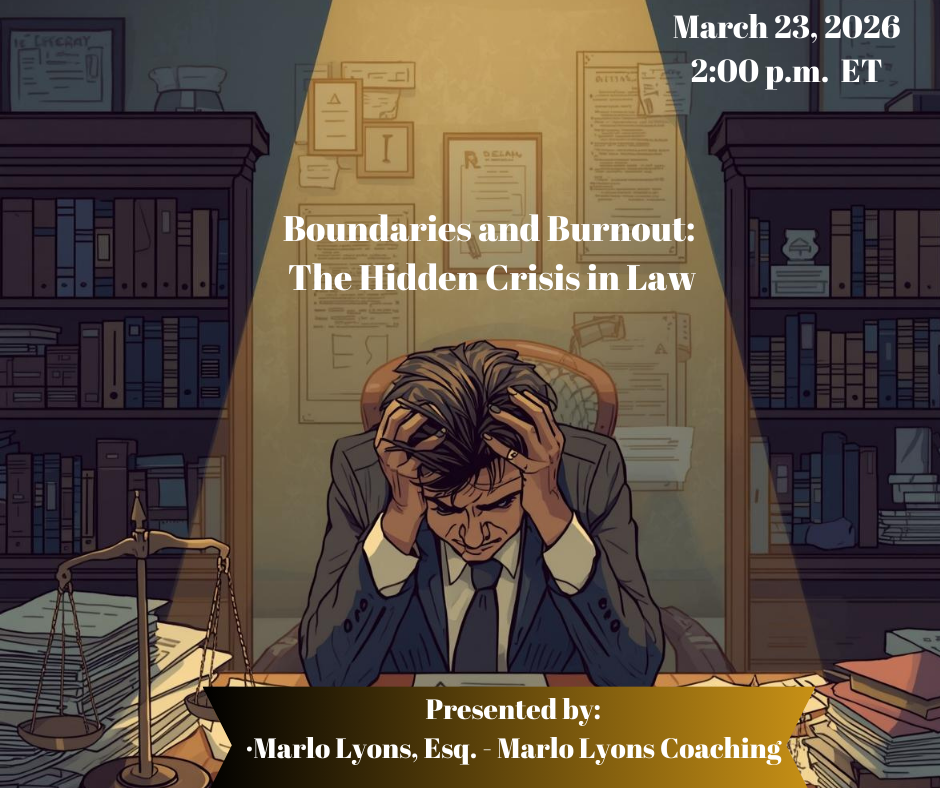
Boundaries and Burnout: The Hidden Crisis in Law is a 60-minute California MCLE Competence Credit pr...
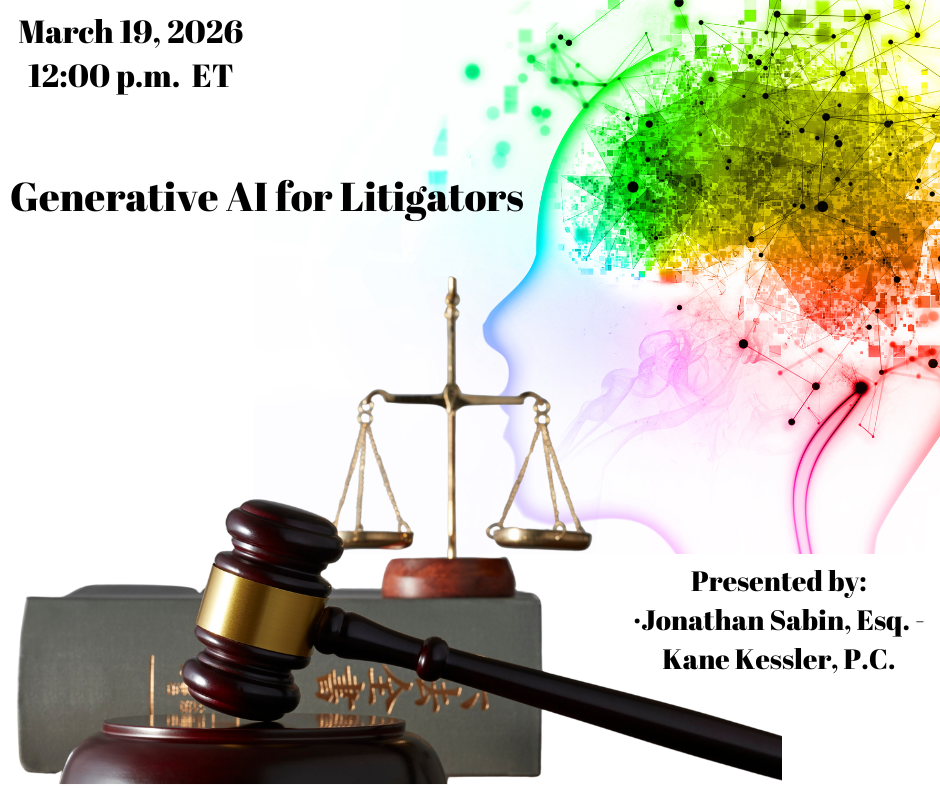
Explore the transformative potential of generative AI in modern litigation. “Generative AI for...
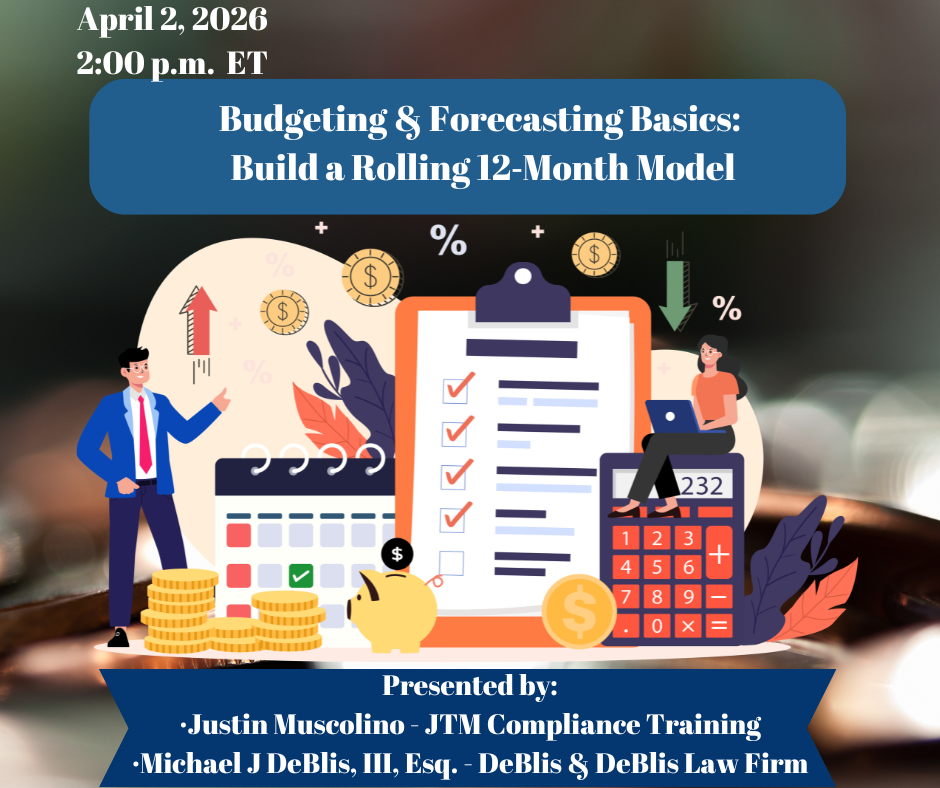
This CLE session introduces attorneys to budgeting and forecasting concepts used in corporate planni...
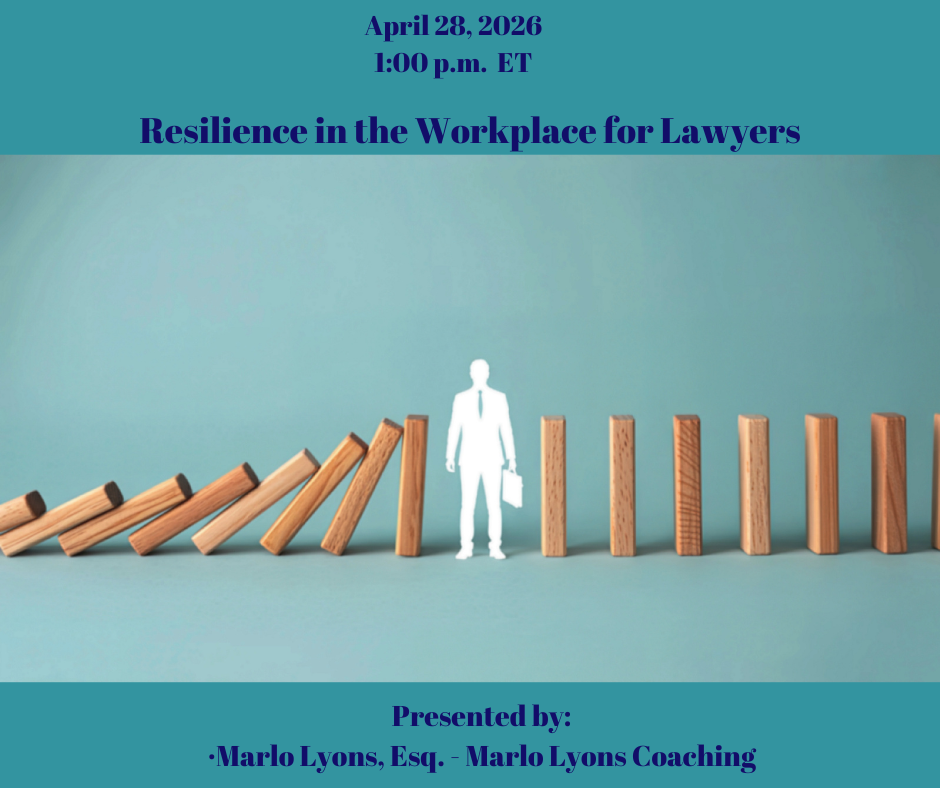
Resilience in the Workplace, delves into the critical importance of resilience in navigating the cha...
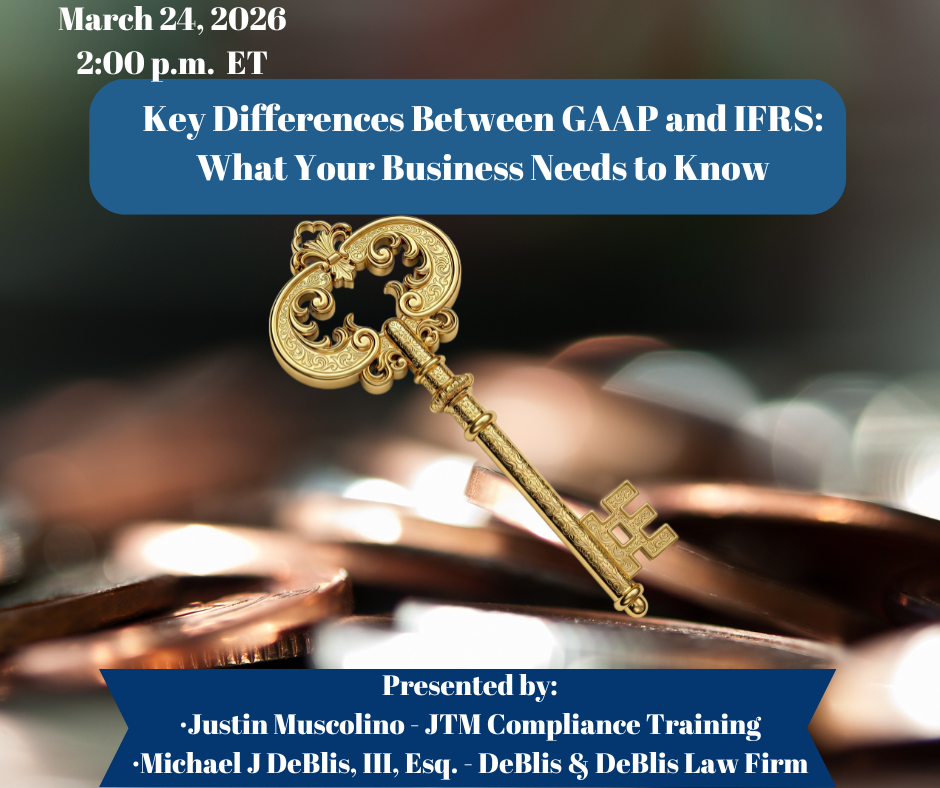
This session highlights the legal and compliance implications of divergences between GAAP and IFRS. ...
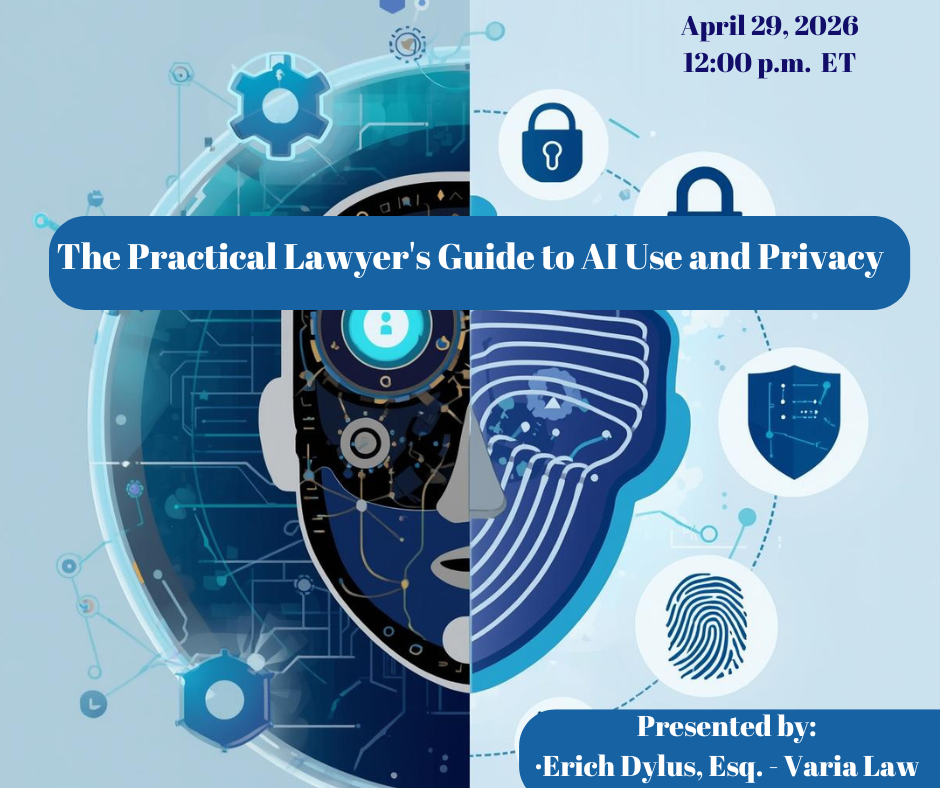
Review the basic software concepts and effective uses of generative AI, prompting strategies, and me...